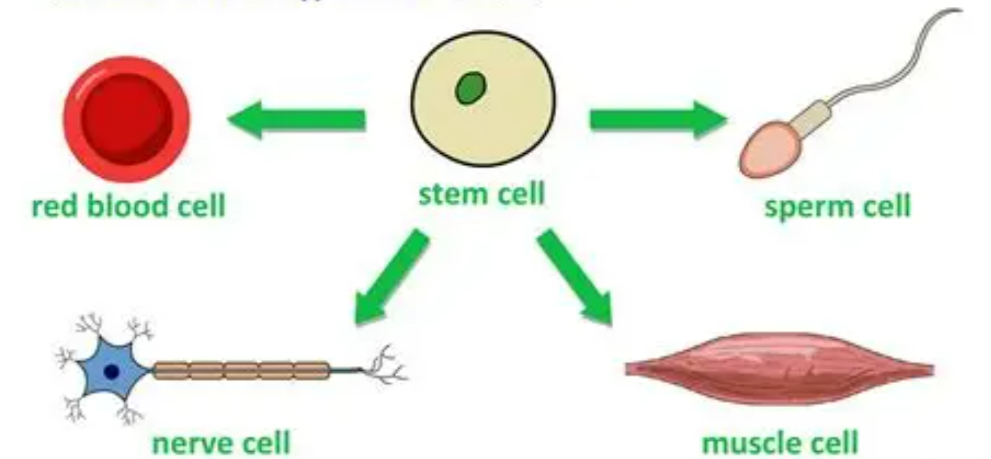Edexcel iGCSE Biology-2.5B cell differentiation- Study Notes- New Syllabus
Edexcel iGCSE Biology-2.5B cell differentiation- Study Notes- New syllabus
Edexcel iGCSE Biology-2.5B cell differentiation- Study Notes -Edexcel iGCSE Biology – per latest Syllabus.
Key Concepts:
2.5B explain the importance of cell differentiation in the development of specialised cells
Cell Differentiation – Specialised Cells
📝 Introduction
Cell differentiation = the process by which cells become specialised to perform a specific function.
Not all cells look the same; differentiation allows cells to carry out particular jobs efficiently.
Essential for growth, development, and survival of multicellular organisms.
🔹 Why is Cell Differentiation Important?
- Specialised Function: Cells develop structures suited for their role.
Example:
Red blood cells → no nucleus, biconcave shape → carry oxygen efficiently.
Root hair cells → long projections → absorb water & minerals. - Efficient Working: Differentiation allows division of labour.
Each cell type does one job very well, instead of all cells doing all jobs. - Formation of Tissues, Organs, Systems: Specialised cells group to form tissues → then organs → organ systems.
Example: Muscle cells → muscle tissue → heart → circulatory system. - Supports Growth and Development: During embryonic development, cells differentiate to make all tissues/organs.
Without differentiation → organism cannot develop properly.
🔹 Examples of Specialised Cells
| Specialised Cell | Adaptation | Function |
|---|---|---|
| Red Blood Cell | Biconcave, no nucleus, contains hemoglobin | Transport oxygen |
| Sperm Cell | Tail for swimming, many mitochondria | Fertilisation |
| Nerve Cell | Long axon, branched endings | Transmit impulses |
| Root Hair Cell | Long projection, thin wall | Absorb water & minerals |
| Muscle Cell | Many mitochondria, contractile proteins | Contraction & movement |
⚡ Quick Recap
Cell differentiation = cells become specialised.
Importance:
• Performs specific functions efficiently.
• Enables division of labour in multicellular organisms.
• Helps form tissues, organs, organ systems.
• Essential for growth and development.
Examples: RBCs, sperm, nerve, root hair, muscle cells.
